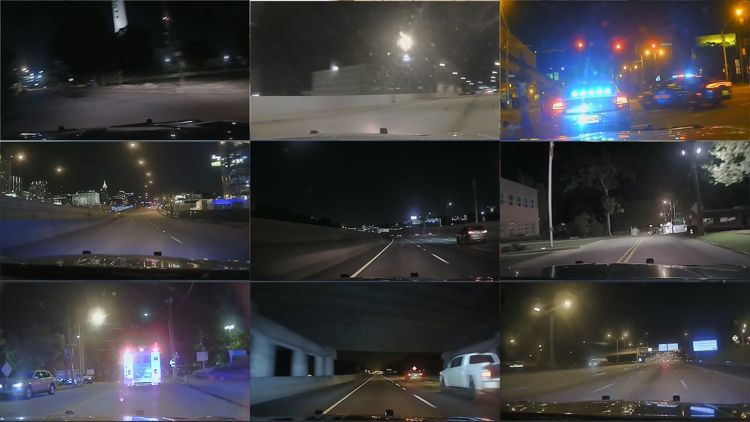ATLANTA — The Georgia State Patrol's mission is to keep the roads safe. But its own enforcement efforts contributed to thousands of crashes, hundreds of injuries, and dozens of deaths.
Documents obtained by 11Alive News Investigates reveal that from 2019 to 2023, Georgia Department of Public Safety personnel -- almost always GSP troopers -- were involved in nearly 7,000 vehicle pursuits. More than half of those chases involved a crash, the same documents show. Many led to injuries or worse.
There were 1,326 people hurt in those chases. 245 of them were bystanders.
According to the same data, 73 people, including 15 bystanders, died.
The impact of GSP's chases helped make Georgia's law enforcement chase death rate the highest in the country, according to an analysis of federal data provided by the National Highway Traffic Safety Administration (NHTSA).
From 2018 to 2022 (the latest full year of data available), 201 people died in law enforcement chases in Georgia. When adjusted for population, no other state had a higher fatality rate, the NHTSA data showed.
North Carolina, a state with a similar population and geography, had a death rate less than half of Georgia's.
Only two states, California and Texas, had a higher raw number of chase deaths over that timespan. Both have a much larger population than Georgia.
According to Chris Harvey, the decision to chase is rarely an easy one for law enforcement officers on the street.
"It's a tough judgment call," he said.
Harvey is the deputy director of Georgia P.O.S.T., the organization that accredits law enforcement officers statewide.
He cautioned against a one-size-fits-all approach but said different agencies have different policies governing how and when they'll chase. Those policies, he said, help guide the actions of law enforcement officers in high-stakes situations.
"You're talking about making split-second decisions that have legal ramifications, have constitutional ramifications, have life and death ramifications, have huge financial ramifications," said Harvey.
Georgia State Patrol's chase policy requires that troopers "exercise great care to ensure" their "actions are objectively reasonable."
The policy calls on troopers to evaluate "the nature of the offense committed by the suspect," traffic conditions, and other factors. But it also gives individual troopers broad discretion to decide whether, and how, to chase. In thousands of instances, they opted to pursue.
GSP leaders were repeatedly invited to an on-camera interview to discuss their chase policy and its outcomes. The agency declined every time. Instead, a spokesperson sent a lengthy statement saying its troopers have "in-depth training and acquired skills that allow them to determine and affect safe pursuits."
It added that the agency's "policy is recognized as proportionally responsive to the rise of criminal behavior enhanced by the use of vehicles on the roads of this State, such as street racing, aggressive driving, and excessive speeding."
Read the full statement at the bottom of this article.
Troopers "do not initiate pursuits; they initiate traffic stops," the statement added. "A driver initiates a pursuit by failing to comply with the officer's lawful demand and fleeing from the intended traffic stop."
Some argue that policy is an overreach.
Thaddeus Johnson, a former Memphis police officer who is now a Georgia State University professor, advocates for a different approach. According to him, law enforcement should generally only pursue in situations where a violent crime or imminent threat to the public is suspected.
"As far as I'm concerned, the risks outweigh the benefits -- even though there's always exceptions," said Johnson. "If you're an agency and you have access to an aviation unit, you have access to drones ... we have camera networks all over the city, we have license plate readers all over. Once you know the identity of this person, turn this over to the investigators."
GSP and the larger Georgia Department of Public Safety did just that nearly 800 times from 2019 to 2023, its annual reports reveal.
But in thousands of other cases, troopers pursued. Sometimes with fatal results.



